from Livescience.com https://ift.tt/36kXMF7
via IFTTT
world and global knowledge that you should know
Are you and your partner argue all the time? It is so common for couples to have some disagreements at some point in their lives.
The disagreement may not reach the argument stage; however, it still remains as disagreement.
Here are the 10 most common reasons why couples argue

The most unexpressed reason behind arguments is sex. When they’re discussing the subject, it’ll make each partner self-conscious when having intercourse. The problem can be either one of them wants less or one wants more.

Let your partner cook without criticizing him. Even the cook’s way of cooking is wrong, let them be.

It never happened that two individuals have the same perspectives when it comes to cleanliness or tidiness. One can be a perfectionist with cleanliness while the other has just no concern at all. Accepting each other’s differences towards this issue or the other’s willingness to change will solve the problem.

Most arguments aren’t regarding facts about what occurred but about how certain situations are remembered. Everyone always remembers the past for them to place themselves in the spotlight. So when you both you’re trying to fix your mistakes when you’re arguing, it becomes difficult because each of you is becoming imaginative to create a memory or to supplement memory. Both parties therefore, might not agree on facts, which lead to conflict.

Who is the decision-maker for the best of your children?
If you’re having a family, numerous arguments are along your way while raising your children. Before, it was the mother. It depends on the era you’ll choose. But these days, it’s everybody’s guess. One can have a quiet and rational negotiation between the couple, which leads to a sensible and mutual outcome.

One reason most people don’t grow is that they usually blame someone if something goes wrong. Extroverts tend to blame others while introverts tend to blame themselves. This is the reason why most couples are ending up together.

Who’s earning the most? If you’re earning 5x your partner does, are you going to share evenly with them?

Again, this is the woman’s domain in a relationship but nowadays, it’s metrosexuals.

The killer is the space between reality and hope. Like birthdays and Christmas, holidays can be compared to a petri dish for disappointment, and this disappointment can lead to conflict and is because you’re looking to blame someone. During holidays, you spend time with your partner 24/7, sharing time and habits that can be annoying to the other which could lead to a toxic environment.

Maybe your partner’s mother doesn’t like you that much or you don’t like her sibling’s attitude. This commonly happened and became one of the many reasons why couples fight. How one perceives the other’s family can create a gap. You can’t get away from your relatives and that’s the truth even if they live a hundred miles away from you. It’s a must to take all those difficulties multiply by 10 if your family is melded.
The post 10 Most Common Reasons Why Couples Argue appeared first on 10 Most Today.
It’s not easy to evaluate and compare who is the greater artist than the other if arts, fame and talent are the basis for assessing.
Therefore, defining who’s the best and most famous is almost impossible, but in general, history can help a little on the subject.
Each person has its point of view of beauty, and it’s true. However, if the point of view of millions of people is the same from past to present, that’s something significant. After all, it makes the artist famous.
Below are the 10 Most Popular Artists Of all Time
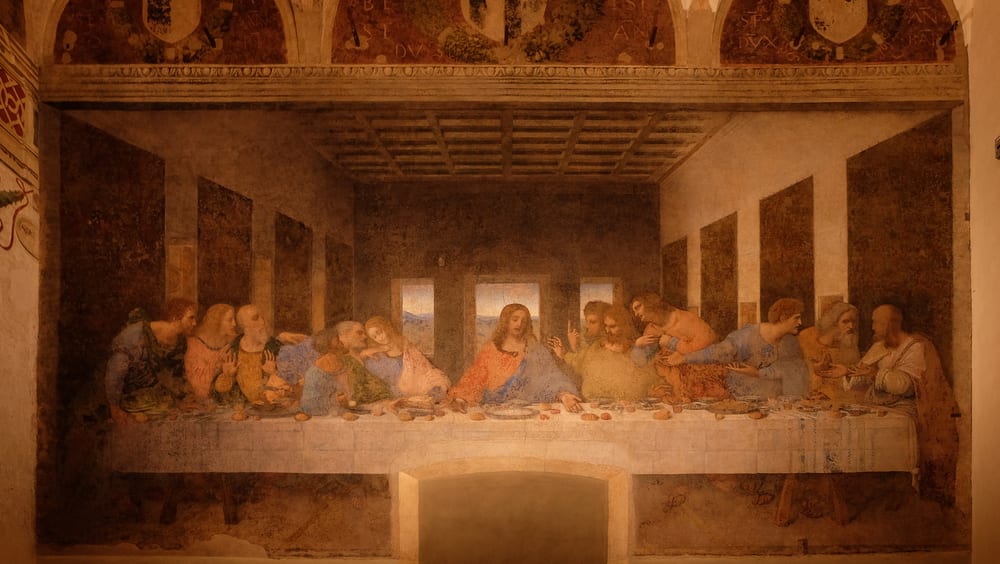
Image credit: PrakichTreetasayuth / Shutterstock.com
Throughout the years, Leonardo da Vinci became the most significant artist during the Renaissance period. He’s behind the Mona Lisa, an iconic masterpiece painting. More than a painter, he’s also an inventor and a scientist. He created numerous human body drawings and has made a lot of modern technologies that are found today. Being a genius isn’t enough for his name.
The Lady with an Ermine and the Last Supper are also his well-known masterpieces. Until now, his works may not be fully understood, but Leonardo da Vinci still becomes an inspiration for the numerous aspiring artists.
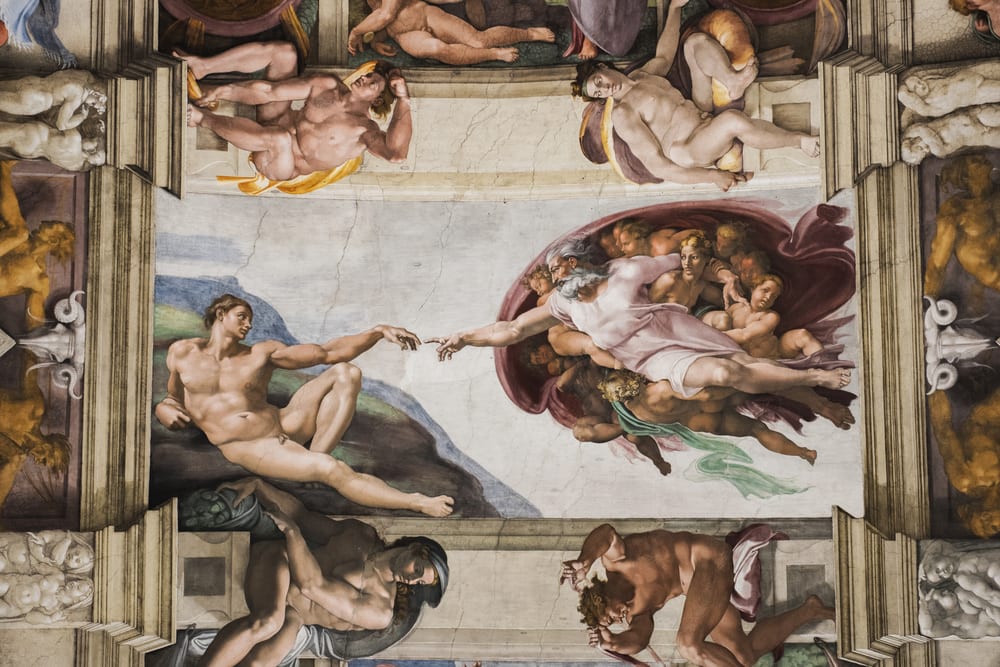
Image credit: Creative Lab / Shutterstock.com
Michelangelo is known for the iconic Sistine chapel mural iconic painting and a well-known artist throughout the years. Aside from being a painter, he’s also a poet, architect, and a sculptor.
Michelangelo was a Renaissance artist who served as an inspiration until now. Aside from his famous Sistine Chapel, he also created Rome’s St. Peter’s Basilica, David and Pieta sculpture, the design for San Lorenzo’s Church Laurentian Library, and for Pope Julian II – Moses on the Tomb well-known carving. After 20 years that his famous Sistine Chapel painting was created, The Last Judgement was made.
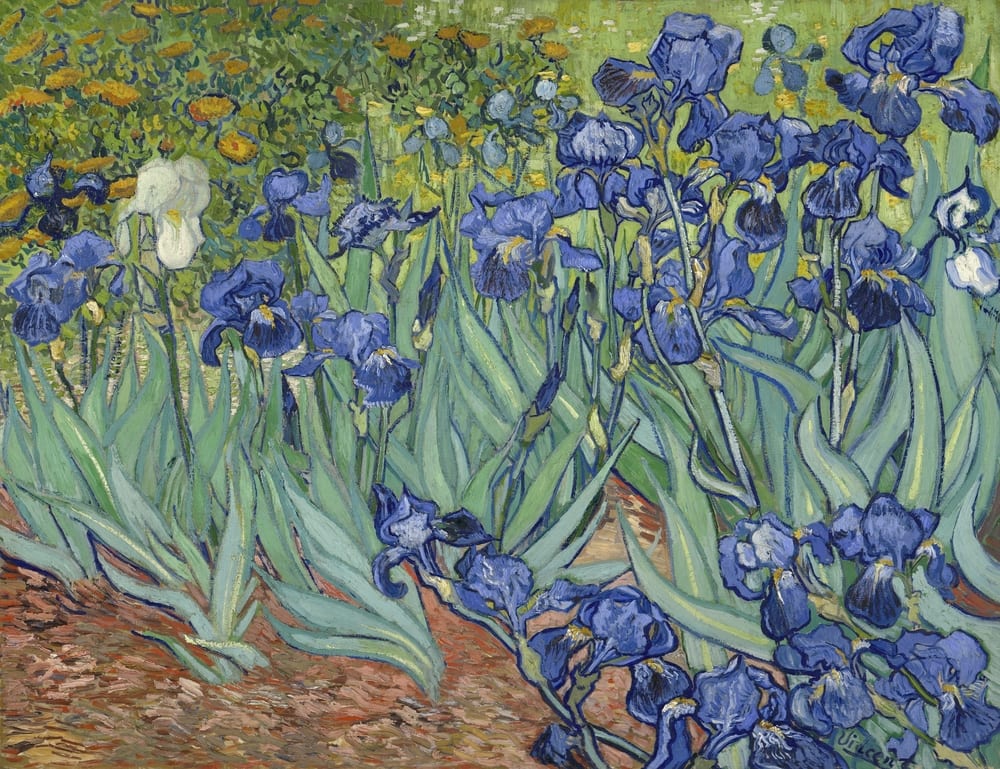
Vincent van Gogh, a post-impressionist Dutch painter, is greatly known for having unstable mental health, especially when he cut his one ear and is also well known for cherished artworks.
The artists of upcoming generations were inspired by his painting technique with thick brushstrokes that are made of bright colors.
Cafe Terrace, Night and Sunflowers, and Starry Night are his most known paintings.

Image credit: neftali / Shutterstock.com
Pablo Picasso, a Spanish and also known as ”cubist” modern painter, has been included in the important figures of modern art history and has been treated as a genius.
The classic art definition was changed through his introduction of concepts like the import cubism or the collage which became an inspiration and impressive to some of the artists of the 20th Century.

Image credit: izamon / Shutterstock.com
In history, Rembrandt was considered one of the best painters and included in the list of famous artists. His mastery was greatly admired because of his artworks. Rembrandt’s paintings were characterized by vivid reality and the inner feelings of his subjects were shown through his skillful illustration of facial expressions and added lights.
Doctors Nicolaes Tulp’s Demonstration of the Anatomy of the Arm and The Night Watch are his famous masterpieces.

Claude Monet, a French painter, was a Minimalism and Pop Art figure and included in the French Impressionate founders’ movement. Mostly, his paintings show how the seasons pass and some landscapes with lights created by unique strokes.
Impression Sunrise, Women in Garden, and Waterlilies are the most recognized portrait of Claude Monet.
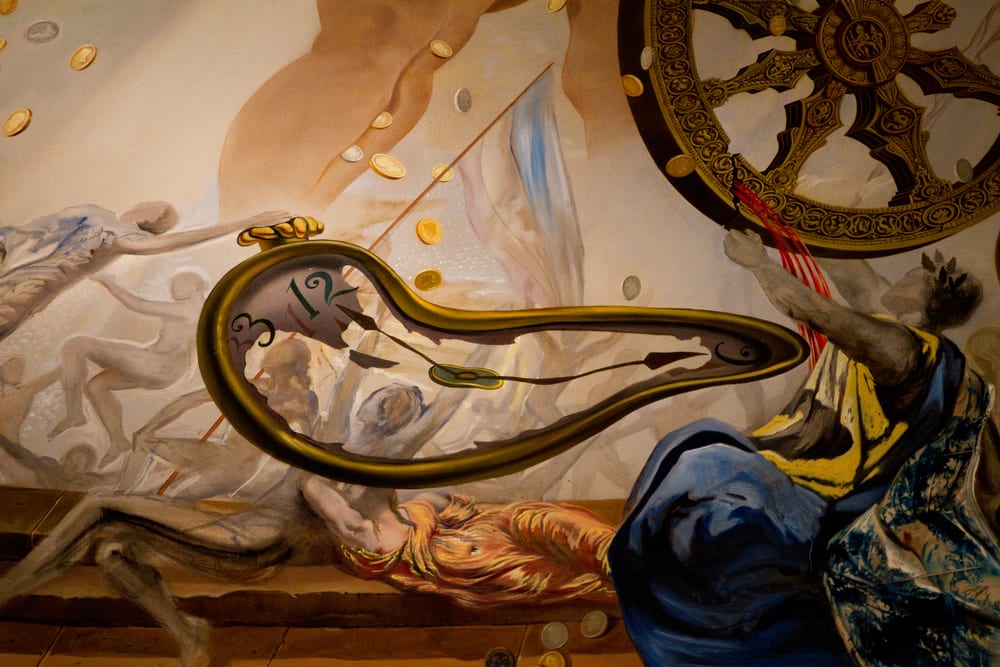
Image credit: Photo_Traveller / Shutterstock.com
Salvador Dali was known not only for his outlandish appearance and bizarre mustache but also for his artworks. He is still known as the most odd of all the artists. He influenced Renaissance works during his time. When his name is mentioned, the eerie landscape and the melting clocks are the usual things that come to people’s minds.

Image credit: spatuletail / Shutterstock.com
The Scream, painted by Edvard Munch, is included in the all-time most recognized paintings due to the fear and anger that it elicits. Others even called it the anxiety of Mona Lisa.
Edvard Munch is considered to contribute to the extent of Expressionism and has greatly influenced Erich Heckel, Egon Schiele, and Max Beckmann.

Jan Vermeer, a Dutch painter, is included in the most significant figures within the arts’ history. His paintings are intense pictures of still life and offer unusual beauty. It’s one main reason why others thought Jan Vermeer used an obscure camera to capture his images.
The Milkmaid, View of Delft, and The Girl With a Pearl Earring are some of his famous works.

Image credit: spatuletail / Shutterstock.com
Frida Kahlo, a Mexican artist, was a paint and canvas master and the feminist movement’s one of the best iconic symbols. The art of her works portrays the worlds’ grim reality and general life.
With her skills, she was able to create realistic paintings of herself, showing her physical and personal suffering and vulnerabilities.
The post 10 Most Popular Artists of All Time appeared first on 10 Most Today.
Instagram-worthy spots attract many tourists and travelers nowadays. Was there any moment when you went to beautiful locations and didn’t take any pictures? Sharing photos and videos on social networks is the most common way for adventurers to record and brag their travels abroad.
Fear not if you don’t know where you’re traveling next. We’ve listed up some best places worldwide that are Insta-worthy.
Below are the 10 most Instagrammable places to visit:
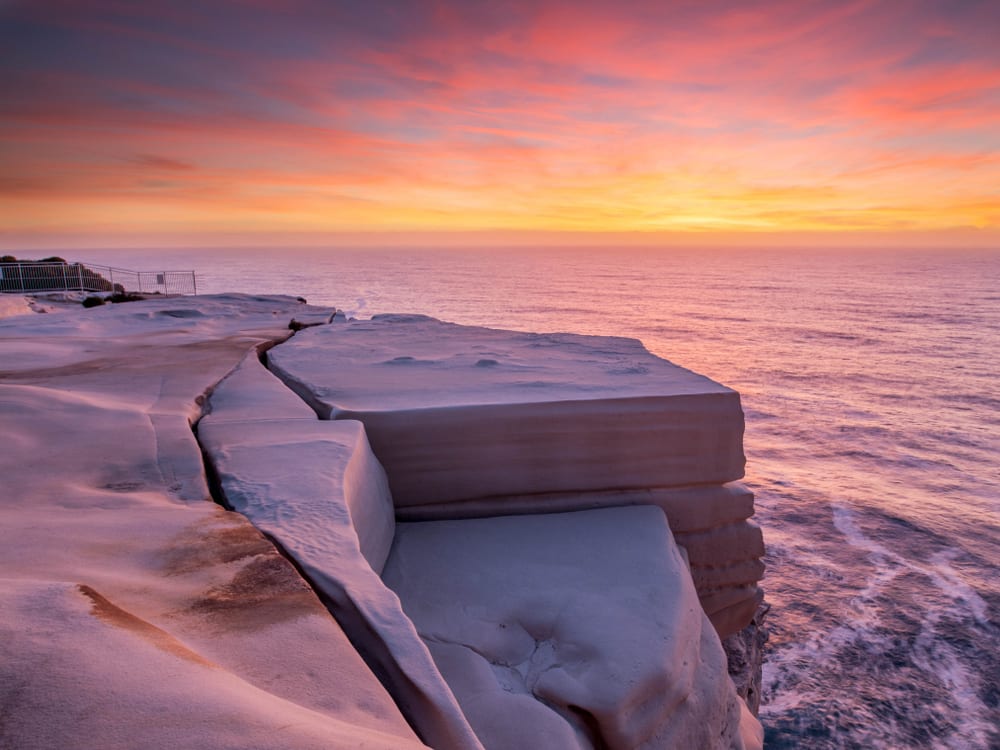
If only we can travel by land, then maybe most of us already reached this one of the world’s most Instagrammable places. Aside from Sydney, where will you spend some of your time? With the Wedding Cake Rock, Bondi Beach, and Sydney Opera House, there are lots of amazing sights waiting to be captured.

Hong Kong is famous for vibrant food, towering skyscrapers, and bustling business district. It’s a destination that deserves a spot in your bucket list. The second most Instagrammed place worldwide is China’s Special Administrative Region.

Tokyo, Japan’s capital, is a bustling metropolis and more modern, while Kyoto is a traditional one to unwind. Kyoto has more temples, calm bamboo forest, and the Fushimi Inari Shrine’s well known red gates. If you want a clear picture when you visit this place, just be more patient.

Are you looking for a stunning architecture, awesome night markets, and various forms of culture to discover, then the best location for you is Taipei. Taiwan’s capital is a destination that’s well known with lots of Instraggamers. A big thanks to its picture-perfect hotspots, so make sure to visit and check this place.

Even if you travel short in the Dutch capital, the sights are overwhelming and Instagram-worthy. From gardens with bursting tulips, captivating windmills to the wonderful Oude Kerk, you’ll be amazed for sure! However, better not try taking pictures in Red Light District if you don’t want to get into trouble.

If you wish your Instagram to be filled with iconic sites, then New York is the best place for you to book. New York has big hitters like Central Park, Times Square, and the Empire State Building to let your followers envy you. However, there are still so many unpopular places but are definitely worth a visit.

Canada is home to Instagrammable places, however Vancouver stands out from others. Thank you to its scenic views that are eyes-catching and cityscapes that are sprawling. Art lovers will surely love Canada’s art locations and galleries!
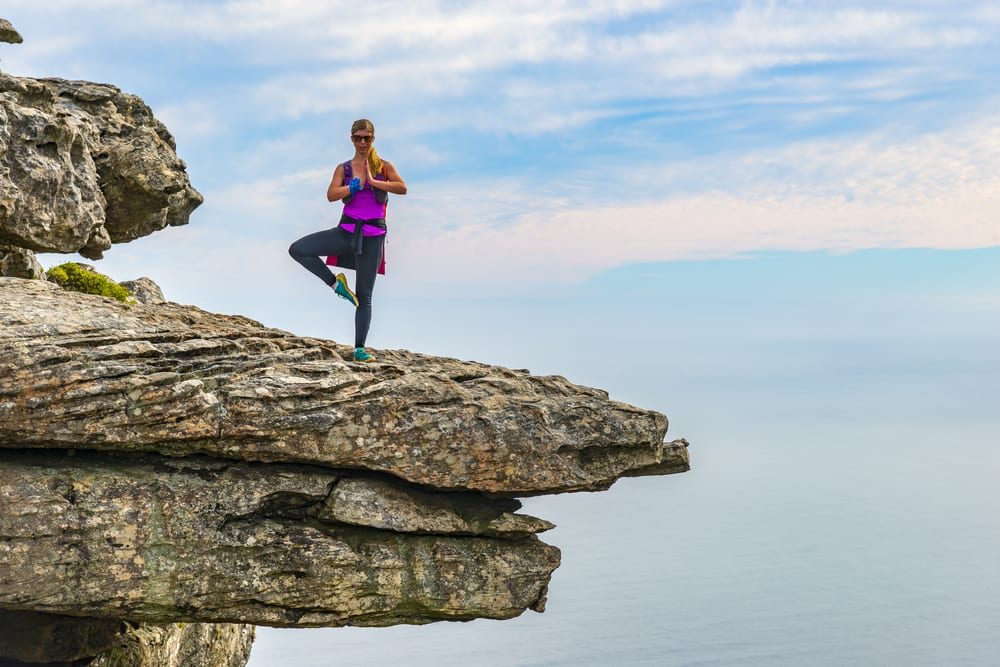
Thanks to the clifftop views and natural beauty that are epic, Cape Town is the favorite of Instagram users. Are you going to start with the breathtaking Cape Point? Or maybe, wanting to see the sunset at Kloof Corner? Either of the two, you can definitely gain more likes and followers when you post the pictures from these places!

Dubai is included in the list of most Instagrammable places that you should visit. Thanks to Dubai’s lively nightlife, surrounding artificial islands, and skyline with many skyscrapers. Just be sure to have some for luxury shopping.

Multicultural Mumbai has 20 million individuals. Be ready to tour the place and capture beautiful places. If you don’t know where to start, the Vipassana Pagoda and India’s iconic gateway are the safe bets. Heading to Chor Bazaar is the best option if you are after the souvenir. It is also great to share your experience in Chor Bazaar by sharing this on your Instagram Stories.
The post 10 Most Instagrammable Places to Visit appeared first on 10 Most Today.